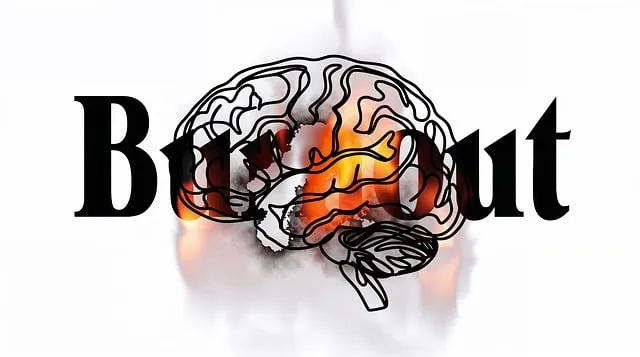Kaiser Permanente Wheat Ridge offers comprehensive mental health services through its unique RFM (Resilience, Flexibility, Mastery) framework, combining mindfulness meditation and burnout prevention. This approach aims to empower patients and staff to navigate challenges effectively, enhancing well-being and patient care. Wheat Ridge's growing demand for mental health services highlights the crucial role of Kaiser in providing accessible options. Integrating community outreach programs focused on resilience building can further strengthen the area's mental health landscape. The RFM model, incorporating physical activities, mindfulness, and compassion cultivation, enhances emotional well-being. By setting goals, adopting coping strategies, and measuring success through qualitative and quantitative data, Kaiser ensures their services remain effective and responsive to the community's needs.
“Wheat Ridge and Kaiser communities face increasing demands for accessible mental health services. This article explores a powerful tool, RFM (Resilience, Flexibility, and Mastery), designed to enhance resilience among individuals. We delve into the significance of RFM in building mental fortitude, offering practical insights on designing and implementing effective exercises. Discover a step-by-step guide for successful RFM integration, highlighting its potential to transform lives. Learn how to measure impact and foster continuous improvement in mental health support within these communities.”
- Understanding RFM and its Role in Resilience Building
- The Need for Mental Health Services in Kaiser, Wheat Ridge
- Designing Effective Resilience Exercises
- Implementing RFM: A Step-by-Step Guide
- Measuring Success and Continuous Improvement
Understanding RFM and its Role in Resilience Building

Wheat Ridge’s Kaiser Permanente offers a range of mental health services designed to support individuals navigating life’s challenges. Among these services, RFM (Resilience, Flexibility, and Mastery) stands out as a powerful framework for building resilience. This approach recognizes that healthcare providers themselves face significant stress, particularly in the form of burnout, which is why integrating RFM into their practices is crucial. By fostering resilience, healthcare professionals can enhance their ability to cope with demanding situations, ultimately improving patient care.
RFM focuses on three key components: resilience equips individuals with the capacity to withstand and recover from adversity; flexibility promotes adaptability in the face of change; and mastery encourages a sense of competence and control over one’s life. Incorporating these principles into daily routines, whether through mindfulness meditation or other burnout prevention strategies for healthcare providers, can significantly impact overall well-being. Wheat Ridge’s Kaiser Permanente understands this need, making mental health services accessible to support both patients and staff in building resilience.
The Need for Mental Health Services in Kaiser, Wheat Ridge

Wheat Ridge, like many communities, faces a growing need for accessible and comprehensive mental health services. Kaiser, as a prominent healthcare provider in the area, plays a crucial role in addressing this demand. The absence of robust mental health offerings within Kaiser could leave residents with limited options, exacerbating existing challenges related to mental well-being. This is particularly concerning given that Wheat Ridge’s diverse population encompasses individuals from various walks of life, each with unique mental health considerations.
Addressing this gap is essential, especially with the implementation of community outreach program initiatives focusing on resilience building and confidence boosting. Such programs can empower residents by providing tools to navigate stress, anxiety, and other mental health concerns. By integrating these initiatives into existing healthcare infrastructure, Kaiser has the potential to significantly enhance the mental health landscape in Wheat Ridge, ensuring a more supportive and resilient community for all its inhabitants.
Designing Effective Resilience Exercises

When designing resilience exercises for individuals seeking mental health services, such as those available at Kaiser in Wheat Ridge, it’s crucial to consider a multi-faceted approach. These exercises should aim to strengthen participants’ coping mechanisms and promote emotional well-being. Incorporating activities that stimulate both physical and mental engagement can be highly effective. For instance, outdoor adventures like hiking or nature walks can foster a sense of grounding and perspective while also providing an opportunity for fresh air and exercise, known benefits for stress reduction and anxiety relief.
Additionally, exercises focused on compassion cultivation practices have proven valuable in depression prevention. Mindfulness meditation, for example, encourages individuals to stay present and cultivate non-judgmental awareness of their thoughts and emotions. This can help participants develop a deeper understanding of themselves and others, fostering empathy and reducing symptoms of isolation. By combining these approaches, resilience-building programs can offer comprehensive support tailored to the unique needs of Kaiser clients in Wheat Ridge.
Implementing RFM: A Step-by-Step Guide

Implementing RFM (Resilience, Flexibility, and Mental Toughness) is a transformative process that can significantly enhance an individual’s well-being and performance, especially in challenging environments. Wheat Ridge does Kaiser have mental health services? Yes, they offer comprehensive programs to support individuals in building resilience. Here’s a step-by-step guide to help you navigate this journey:
1. Assess Your Current State: Begin by evaluating your current mental and emotional state using self-assessment tools or seeking professional guidance from therapists at Kaiser. This step is crucial as it helps identify areas that need strengthening, whether it’s managing stress, improving conflict resolution techniques, or boosting confidence.
2. Set Clear Goals: Define specific, achievable goals for each aspect of RFM. For instance, set a target to enhance flexibility by trying new activities outside your comfort zone or work on building inner strength through regular meditation practice. These goals will serve as your compass throughout the process.
3. Cultivate Resilience: Focus on developing resilience by learning effective coping strategies and stress management techniques. Engage in activities that challenge you but remain within your control, fostering a sense of accomplishment and adaptability. Regularly review and adjust your approach to navigate life’s curveballs.
4. Build Flexibility: Embrace change as an opportunity for growth. Practice mindfulness to stay present during transitions, allowing yourself to adapt more fluidly. Incorporate conflict resolution techniques into daily interactions, promoting healthier relationships and a more flexible mindset.
5. Nurture Mental Toughness: Challenge your thoughts and beliefs that limit you. Engage in regular physical exercise, as it boosts endorphins and strengthens both body and mind. Visualize success and practice positive self-talk to build mental toughness, enabling you to face challenges head-on.
Measuring Success and Continuous Improvement

Measuring Success and Continuous Improvement are paramount aspects of any robust resilience-building initiative, especially when considering mental health services like those offered by Kaiser in Wheat Ridge. The success of RFM implementation can be gauged through a multi-faceted approach, encompassing both qualitative and quantitative data collection methods. This involves regularly assessing participant feedback, tracking improvements in mental well-being, and monitoring changes in service utilization patterns. By analyzing these metrics, healthcare providers like Kaiser can identify areas where their programs excel and aspects that require refinement.
For instance, regular Mental Health Policy Analysis and Advocacy sessions within the community can help tailor services to address emerging needs. Incorporating mindfulness meditation practices, as part of a holistic wellness program, may also contribute to improved resilience outcomes. Through continuous quality improvement cycles, Kaiser in Wheat Ridge can ensure their mental health services remain effective, responsive, and culturally competent, as evidenced by their Healthcare Provider Cultural Competency Training initiatives.
In light of the growing need for mental health services in communities like Wheat Ridge, implementing resilience-focused strategies is more crucial than ever. The RFM (Resilience, Flexibility, and Mastery) model offers a comprehensive approach to building mental fortitude, as evidenced by its effectiveness in enhancing individuals’ ability to navigate life’s challenges. By following the step-by-step guide provided, organizations can successfully integrate RFM exercises into their programs, ensuring folks in Kaiser and similar areas gain access to powerful tools for fostering resilience. Continuous improvement, measured through regular assessments, will help tailor these initiatives to best support the unique mental health needs of communities like Wheat Ridge.






